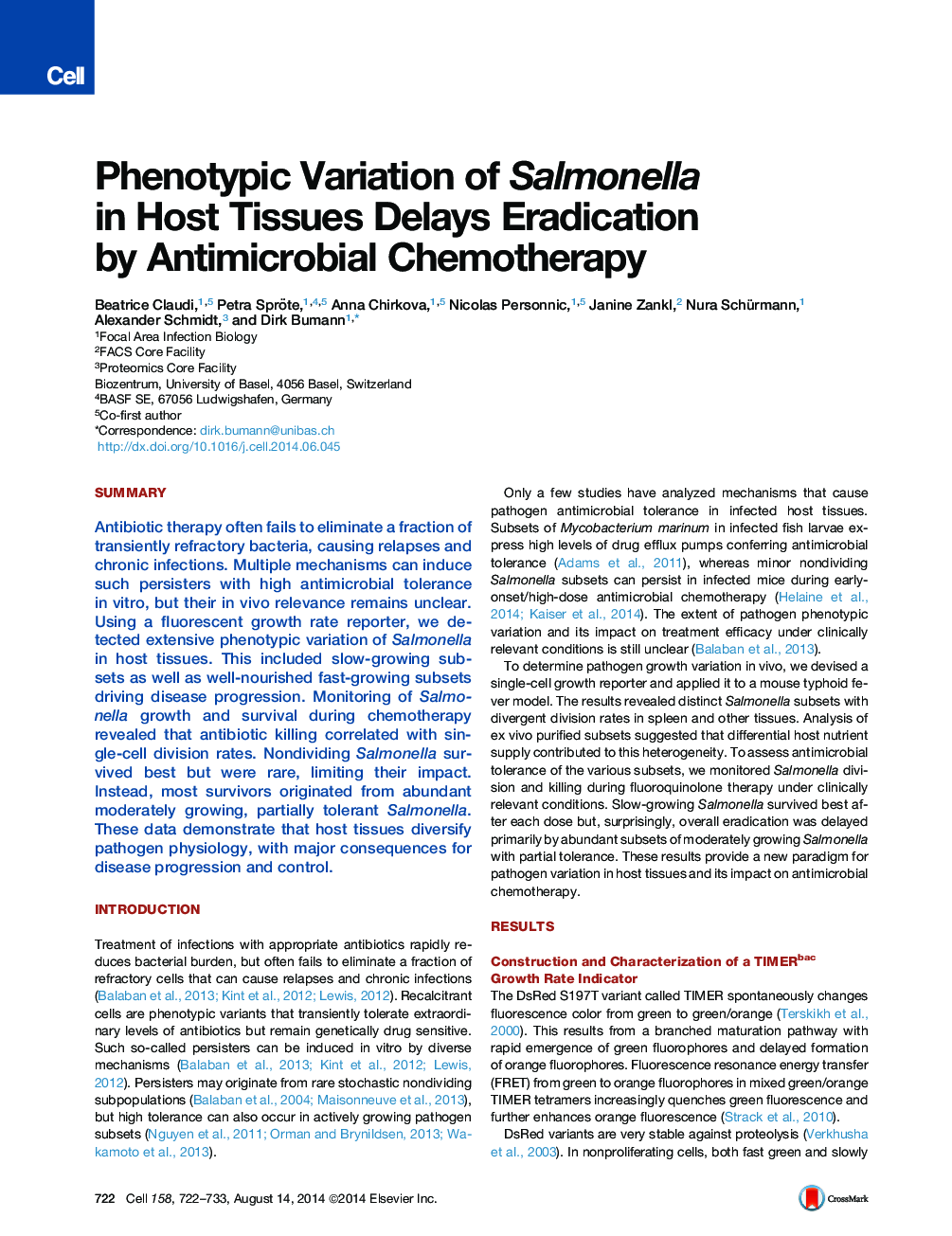| کد مقاله | کد نشریه | سال انتشار | مقاله انگلیسی | نسخه تمام متن |
|---|---|---|---|---|
| 2035397 | 1072171 | 2014 | 12 صفحه PDF | دانلود رایگان |
• TIMER is a single-cell growth rate reporter for pathogens in infected host tissues
• Salmonella subsets with divergent growth rates coexist in infected mouse spleen
• Antimicrobial chemotherapy kills predominantly fast-growing Salmonella
• Partial tolerance of abundant moderately growing Salmonella delays eradication
SummaryAntibiotic therapy often fails to eliminate a fraction of transiently refractory bacteria, causing relapses and chronic infections. Multiple mechanisms can induce such persisters with high antimicrobial tolerance in vitro, but their in vivo relevance remains unclear. Using a fluorescent growth rate reporter, we detected extensive phenotypic variation of Salmonella in host tissues. This included slow-growing subsets as well as well-nourished fast-growing subsets driving disease progression. Monitoring of Salmonella growth and survival during chemotherapy revealed that antibiotic killing correlated with single-cell division rates. Nondividing Salmonella survived best but were rare, limiting their impact. Instead, most survivors originated from abundant moderately growing, partially tolerant Salmonella. These data demonstrate that host tissues diversify pathogen physiology, with major consequences for disease progression and control.
Graphical AbstractFigure optionsDownload high-quality image (224 K)Download as PowerPoint slide
Journal: - Volume 158, Issue 4, 14 August 2014, Pages 722–733
